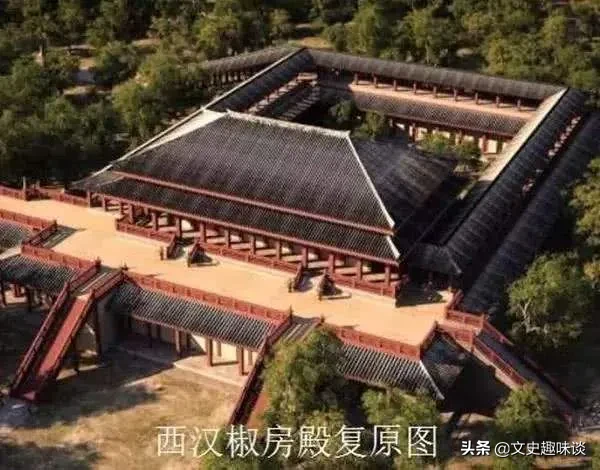In 1981, during the exploration and excavation of the ruins of Weiyang Palace in the Western Han Dynasty, it was found that under the rammed earth platform of the "Jiaofang Hall" of the Empress's Residence, there was an underground secret passage with a north-south direction, up to 20 meters long and about 1 meter high, and one end was connected to the slope and small steps, leading to a small room at the end. The entire secret passage is well-designed and well-made, with wooden pillars on both sides to support the cave roof, candlesticks for lighting every few meters, and green bricks on the ground, which are also carved with geometric ornaments that play a non-slip role.
What is the purpose of this elaborate secret passage?
Usually, the secret passage is built to prevent emergencies on the ground and is used as an escape or shelter, but the secret passage of the Pepper Room Hall does not lead to the outside of the palace, and it is very easy to be blocked from the outside into an urn to catch turtles. Obviously, this secret passage did not have an escape function, and it was not designed to prevent unrest outside the court.
Similar secret passages have been found under the ruins of the Changle Palace, where the Empress Dowager of the Western Han Dynasty lived. The distribution point of the secret passage of Changle Palace, analyzed according to the layout of the palace structure, leads directly to the sleeping hall where the empress dowager rests. Such an important and hidden position, unless it is a close confidant whom the empress relies heavily on, no one else will have the opportunity to set foot.
In addition, the other palaces of Weiyang Palace have never found any secret passages.
Why is there only a secret passage under the queen and empress's bedchamber?
This is related to the "dual politics" of the Western Han Dynasty. Judging from the long-term involvement of Empress Lü of Liu Bang, Empress Dou of Emperor Wen, and Empress Wang of The Yuan Dynasty, in the power system of the Western Han Dynasty, the imperial power of the patrilineal line and the post-power of the matrilineal line are a cyclical law of alternating on the throne and disappearing one after the other. However, foreign relatives have always been jealous of courtiers and cannot be explicitly placed on the table, so the underground "secret passage + secret room" project with a key position and a considerable scale has become a place for the conspiracy of foreign relatives.
For example, in Liu Bang's later years, he was very worried about the young crown prince Liu Ying, who could not suppress the heroes who followed him to fight the world, and then he needed a relatively strong Lü Hou to escort the new emperor. Under this kind of situation, the harem was allowed by the imperial power, so this secret passage project that was difficult to hide from the ears could be completed with the acquiescence of the emperor.
However, the expansion of the foreign clique will eventually contradict the imperial power that strongly desires "solipsism", and even the collision of fierce competition for power. In his later years, Emperor Wu of han was fully aware of the situation in which empress dowager Dou and empress dowager Wang were involved in the government at the beginning of his reign, and he simply came up with a fierce move of "leaving his son and going to his mother" and killing The birth mother of Crown Prince Liu Fuling, Lady Hook Yi, was given to death, and the possibility of the new emperor being constrained by foreign relatives in the future was ruled out in advance.
This game of thrones has been played for 200 years and finally can no longer be maintained. Since the beginning of the HanCheng Emperor, around the empress dowager Wang Zhengjun, the power of Wang's foreign relatives has been expanding, and finally to the point where even the emperor cannot balance it. On January 15, 9 AD, wang mang, a foreign relative, usurped the Han dynasty and established the New Mang Dynasty.
